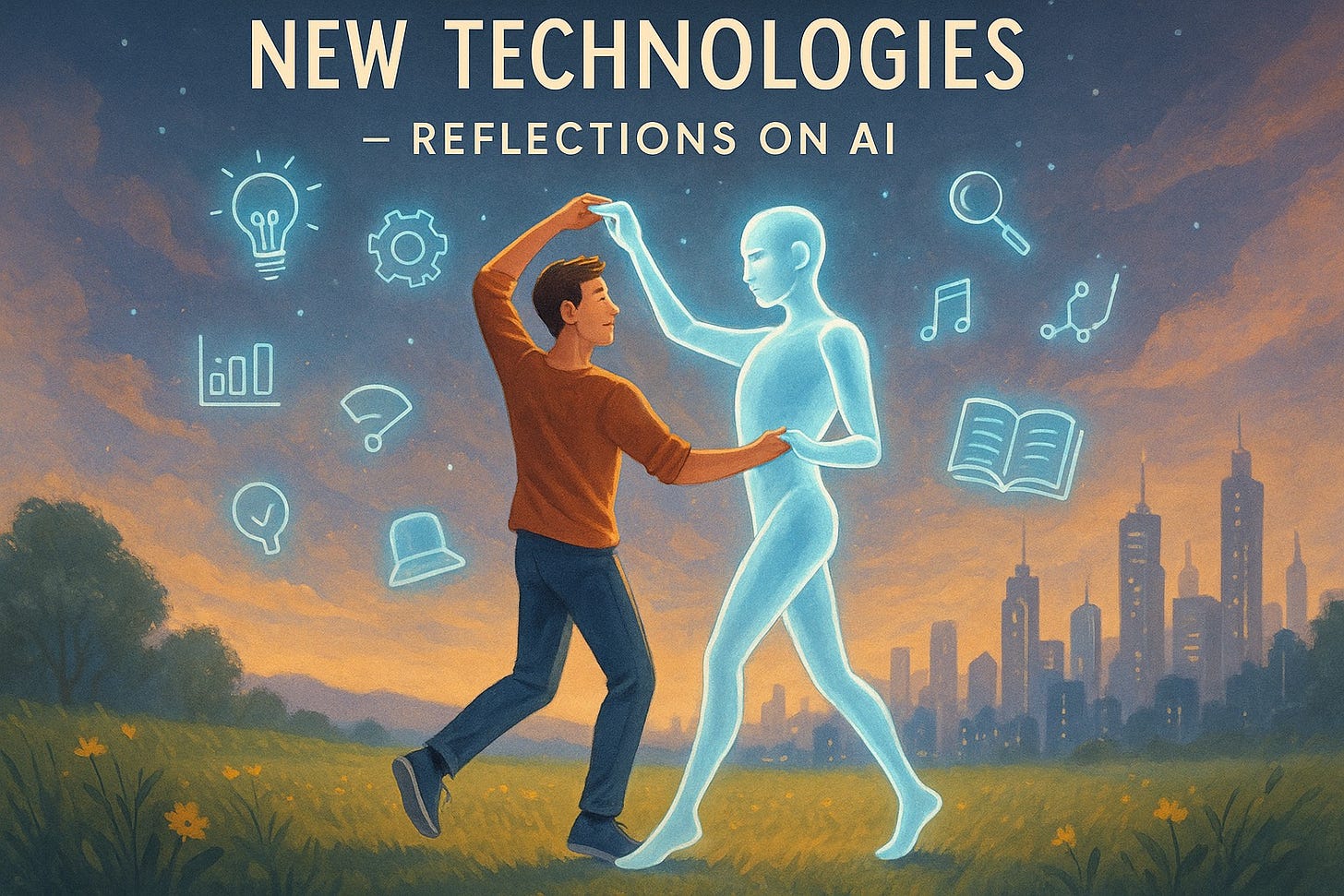Since the release of chat GPT, I’ve been dancing with the question of the appropriate use of AI. I’ve noticed that this can be a contentious issue, and I’m interested in exploring different perspectives.
I’ll take the opportunity here, to outline a few preliminary thoughts of my own in order to perhaps get a conversation started.
What’s your thoughts and feeling on this rapidly emerging technology?
How are you currently engaging with it?
Any thoughts or tips for new players?
Here’s my own preliminary thoughts to get the ball rolling:
AI can provide rapid first draft responses to well crafted questions. The quality of answers is limited by the quality and clarity of the questions that prompts them. Learning how to write good prompts is a good investment at the outset.
It seems that some AI platforms will tell outright lies on occasion; so all AI propositions and sources should be personally fact checked, if you’re interested in sticking to facts.
Like word processing before it, AI can accelerate the publishing process, by editing for basic grammar, typos, format, layout, contents pages etc.
AI can be a very helpful research assistant - or rather research team - quickly locating key resources, authors and references to support emerging ideas and explorations. Asking for an exhaustive bibliographies, with references to related authors, books, articles, websites, courses etc. is a great way to expand your knowledge in a particular field of interest.
AI is a valuable tool and resource. It can be very effective in supporting one’s own creative exploration. It accelerates the process. It does not need to be the source of creative output, in order to assist, expand, inspire, amplify and accelerate it.
Plagiarism is the theft of the work of another, presented dishonestly as one’s own, with a predetermined intention to deceive, defraud or attract unearned kudos, credit, recognition or other personal benefit. Open attribution of all sources, including AI where appropriate, can help assist others in appraising one’s work in this regard.
In the process of working with an efficient and effective editor and publisher (AI), one can learn the skills of becoming a better editor and publisher in one’s own right.
I’ve encountered folks who have said “I won’t read anything that is AI generated”. I must admit I don’t quite understand such a self-censorsoring approach to information. By all means check and validate sources, but why cut oneself off from an extraordinary rich and expansive source of knowledge? “Knowledge is where you find it - Learn wherever you can” might be a useful moto.
I won’t be ruled by AI. Nor am I afraid to use it, if it benefits my needs and purpose. I’m a story teller, designer, communicator and educator. AI assists me in all of these self determined goals.
I’ve been curious about appropriate ways to reference and acknowledge AI contributions to one’s work; and have just completed an article entitled “AI - Attribution Methods” to assist. Check it out here.
Due attribution is respectful and often appropriate. But - like referencing key quotes, referring to work by others, or “reposting” others articles - the important thing is: sharing Wisdom where we find it; contributing to it in some small way ourselves; and cocreating new knowledge and new possibilities together. “Originality” may be overrated. We all build upon the shoulders of giants. Rather than aiming too exclusively for “originality”, try being: open, honest, transparent, curious, imaginative, creative, empathic and compassionate. Add what you have to offer, and be of service to the best of your ability.
Do your best to, where appropriate, duly attribute contributions to your work by others; whilst not being too concerned about the need to be the “author” yourself. For me, the cocreation of new knowledge together - for the benefit of all, by what ever means - in the real value of our cocreative productions.
Wisdom is where we find it. We know it, because it resonates with something within ourselves. Wisdom does not come from “out there”, it arises as insight from within.
I guess what I’m trying to say is: it’s the quality of wisdom that’s transmitted that matters, more than the method of delivery.
The means may justify the ends, but do no harm in the process.
This is far from a comprehensive list, but some food for thought as we all learn to dance together in a newly emerging tech landscape.
What’s the obvious omissions here? What would you add to the list as tips for new punters?
Join the conversation! Leave your comments below.


